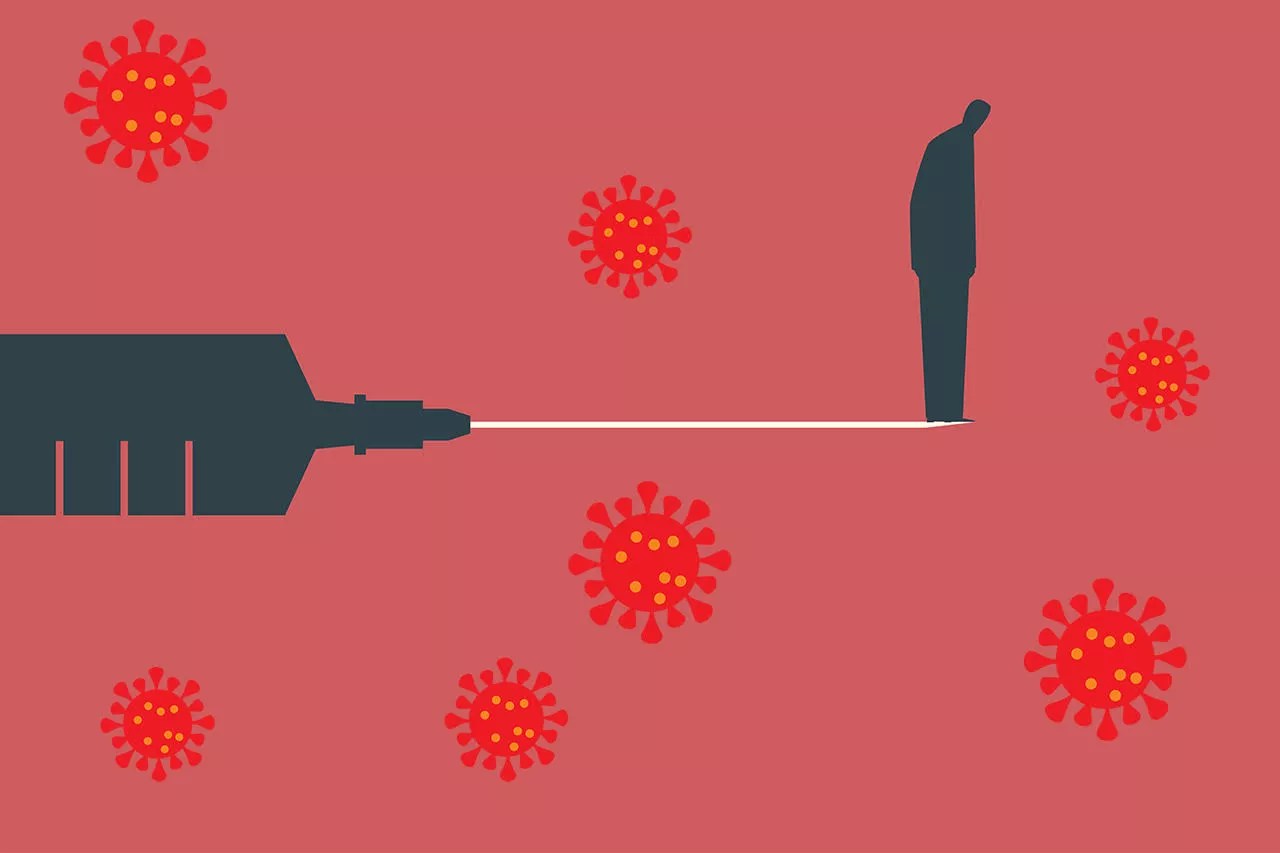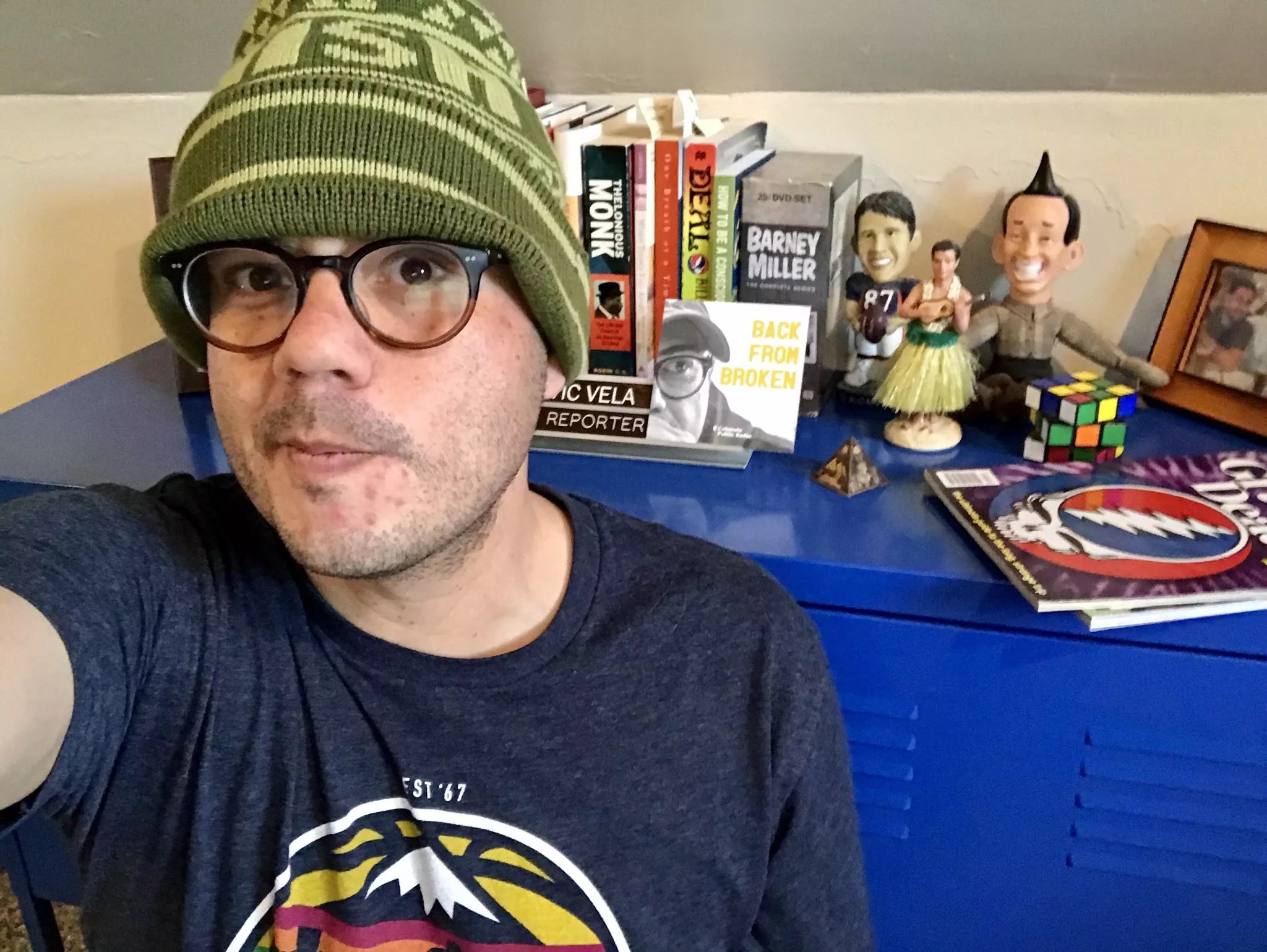
Getty Images

Audio By Carbonatix
For many recovering addicts, the stress and isolation caused by the COVID-19 pandemic can lead to suffering or, worse, relapse. But Willy S., who quit heroin just over a year ago, is ready to face these challenges.
“All of these unknowns popping up was scary at first,” he says. “I was pretty comfortable in my routine of going to set weekly meetings, but being comfortable doesn’t promote growth.”
In late 2018, Willy S. was homeless and looking for his next fix. He had tried both counseling and medically assisted treatment before, but neither had worked. “I could maybe string a couple of days of sobriety together, but I couldn’t stay stopped,” he remembers. “It took me being arrested and sitting in the suicide hospitalization unit in Jefferson County to be separated from the drug.”
When he was released from the Jeffco jail, he knew he didn’t want to return to life on the streets. He moved directly into a sober living community and attended his first 12-Step recovery meeting the next day.
The 12-Step program is a popular method for addiction recovery first put forward by Alcoholics Anonymous, which has since spread to groups such as Cocaine Anonymous and Narcotics Anonymous. The foundation of the program is community support that’s constantly reinforced through in-person meetings led by a decentralized network of local groups.
But because of both Governor Jared Polis’s stay-at-home order and social-distancing measures recommended to slow the spread of COVID-19, Denver’s in-person recovery meetings have dried up over the past few weeks. That’s something of a double whammy for the 12-Step community, given that social isolation can already be difficult for other reasons for those in recovery.
“For a lot of people, their addictions became isolating because they used drugs and alcohol by themselves.”
“For a lot of people, their addictions became isolating because they used drugs and alcohol by themselves,” says Rob. W., who quit using cocaine sixteen years ago and now helps cover Cocaine Anonymous of Colorado’s 24/7 toll-free hotline, which is operated by volunteers and funded through a grassroots system of contributions from people who attend CA meetings throughout the state. “Now we’re putting people back into an isolated state, where they’re not able to sit in a room and be with other people in recovery who have had the same disease and were able to stop.”
Colorado Public Radio‘s Vic Vela, host of Back From Broken – recently named Westword‘s Best Podcast About Addiction – agrees that isolation can be particularly challenging for those who haven’t spent a lot of time in sobriety. Vela, who used to smoke crack and use cocaine daily, recalls “going down into the basement, closing the blinds, and shutting myself off from the world.”
“The orders to quarantine, shelter in place, isolate seemed pretty counterintuitive to everything we’ve been taught, which is to gather, commune and connect,” says Meghan White, the alumni and volunteer coordinator at CeDAR, the University of Colorado Health’s Center for Dependency, Addiction and Rehabilitation at the Anschutz Medical Campus in Aurora. “The challenges are pretty apparent. But those of us in recovery are very creative and resilient people in finding solutions.”

CeDAR has had to make some adjustments during the coronavirus crisis.
Anschutz Medical Center
For Willy S., the solution was to create a virtual recovery meeting. He started out by attending several online meetings in rapid succession to see how they worked, then launched his own meeting using word of mouth and posting about it on Facebook recovery groups. Now between fifteen and thirty people join him over video-conferencing app Zoom.
The virtual meetings follow the same format Willy S. adopted for facilitating in-person meetings, which he began volunteering to do within the first few months of getting sober. “Once you get used to the feeling of talking to a computer, you can realize you’re there to do the same thing as an in-person meeting,” he says. “I go to meetings to share a solution and help the still-suffering addict or alcoholic. That’s why I’m on my computer every night doing the same thing. It just looks different.”
Rob W. acknowledges that going to a virtual recovery meeting can feel intimidating at first – but hopes that doesn’t stop people from trying one out. “It’s like walking into your first meeting again,” he says. “You have to get online and experience your first virtual meeting in today’s world. Don’t lose hope.”
“You have to get online and experience your first virtual meeting in today’s world. Don’t lose hope.”
The loss of physical interaction is not the only challenge to virtual meetings. There are technical difficulties, of course, and the potential for trolls, which have been targeting recovery meetings recently. And some people simply don’t have access to the technology.
For those people, or others in immediate crisis, there are options. The Colorado Department of Human Services Office of Behavioral Health considers addiction treatment a “critical service.” So residential programs, withdrawal management programs, opioid treatment programs, medication-assisted treatment and Colorado Crisis walk-in centers remain crucial resources.
Still, hosting the virtual meetings has allowed Willy S. to not only support others, but help himself. In general, the meetings don’t focus on the ongoing crisis that has moved the gatherings online. Rather, participants – who remain anonymous by disclosing only their first name and last initial in 12-Step meetings – share their recovery stories by talking about practices, such as taking personal responsibility for finding purpose in their lives, that have helped them stay sober for the long haul. By discussing what’s worked and what hasn’t, people can learn from and support each other.
“If I didn’t have this nightly meeting, I would very easily fall into a lazy slump,” Willy S. admits. “But I know there might be someone in my meeting each night who’s struggling, and that I need to share a message of hope, strength and courage.”
The Denver Central AA office typically helps coordinate 1,180 local weekly meetings and, like CA of Colorado, runs a 24/7 hotline; the office’s website now lists 200-plus online and phone meetings, which each draw between six and 150 attendees.
An AA representative notes that the virtual meeting format is not new; online AA meetings have been held since 1986, to connect people in the Armed Forces or those who live in remote places.

Vic Vela goes virtual.
Vela has attended several virtual meetings recently, and observes that “the online meetings are fun and even a little silly. People tell jokes about what pajamas they’re wearing or whatever. There’s something comforting about the fact that we’re all in this together.”
A friend with whom he got sober recently tested positive for COVID-19. Unable to visit in person, Vela used his phone to connect. “He said, ‘Thank God’ he’s not using heroin anymore. I said, ‘Thank God I’m not using cocaine,'” says Vela. “That led to a snowball effect of talking about what we’re grateful for.”
White notes that CeDAR, which offers detox, residential and outpatient programs, has faced new challenges in recent weeks. The center not only operates under state guidelines, but follows the protocols of UCHealth’s infection prevention team. So its initial focus was on protecting its current patients and staff, and it stopped accepting new patients for about a week before adapting and accepting new patients again starting on March 30 – after stringent screening for coronavirus exposure. But the staff, too, has taken as much of their activities online as possible, offering not only virtual meetings, but therapy, peer coaching and tele-health treatments over the web.
“This is what we have available to us now, and we really need to take advantage of that,” says White, adding that one silver lining has been including CeDAR alumni in virtual meetings who hadn’t been able to attend before because of their location or scheduling conflicts. “Some people have even been able to attend more meetings these past few weeks than they may have in previous months – or years, even – just because virtual meetings allow for more accessibility.”
Moving forward, White wants to use technology to find more creative solutions to connect with those in the CeDAR community. She’s planning activities such as collectively watching a live-streamed concert or simultaneously screening a movie on Netflix. Beyond that, she says it’s important for those in the sober community to focus on what’s within their control
“We need to recognize that this is our new normal. This is how we’re going to engage, and it’s better than not engaging at all,” says White. “Community is not a physical place. While we might not be able to gather in our usual meetings, we can gather together on our screens.”